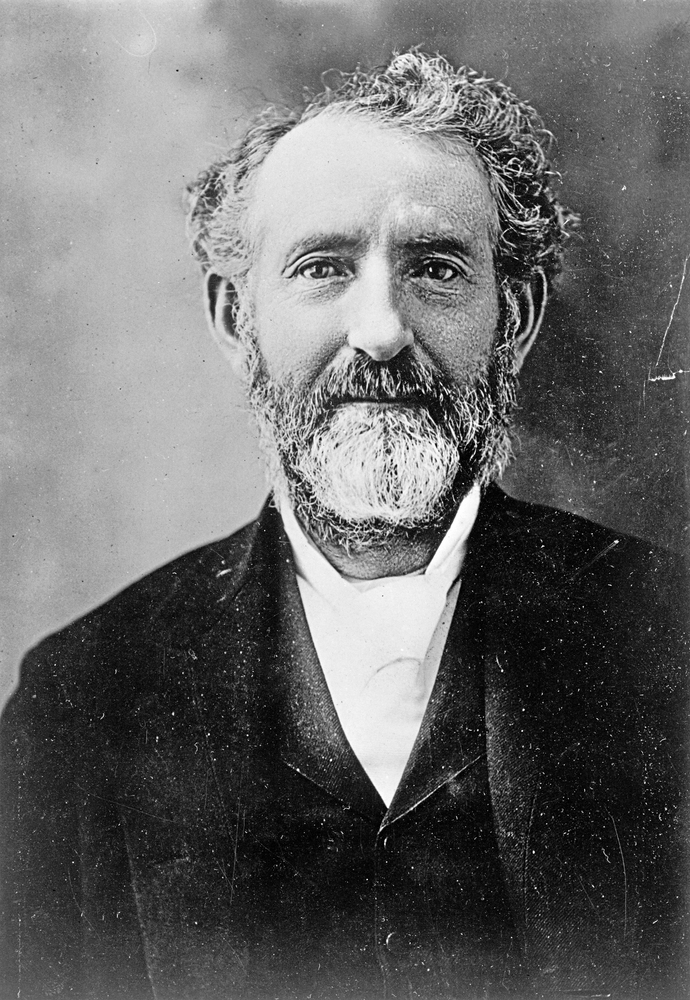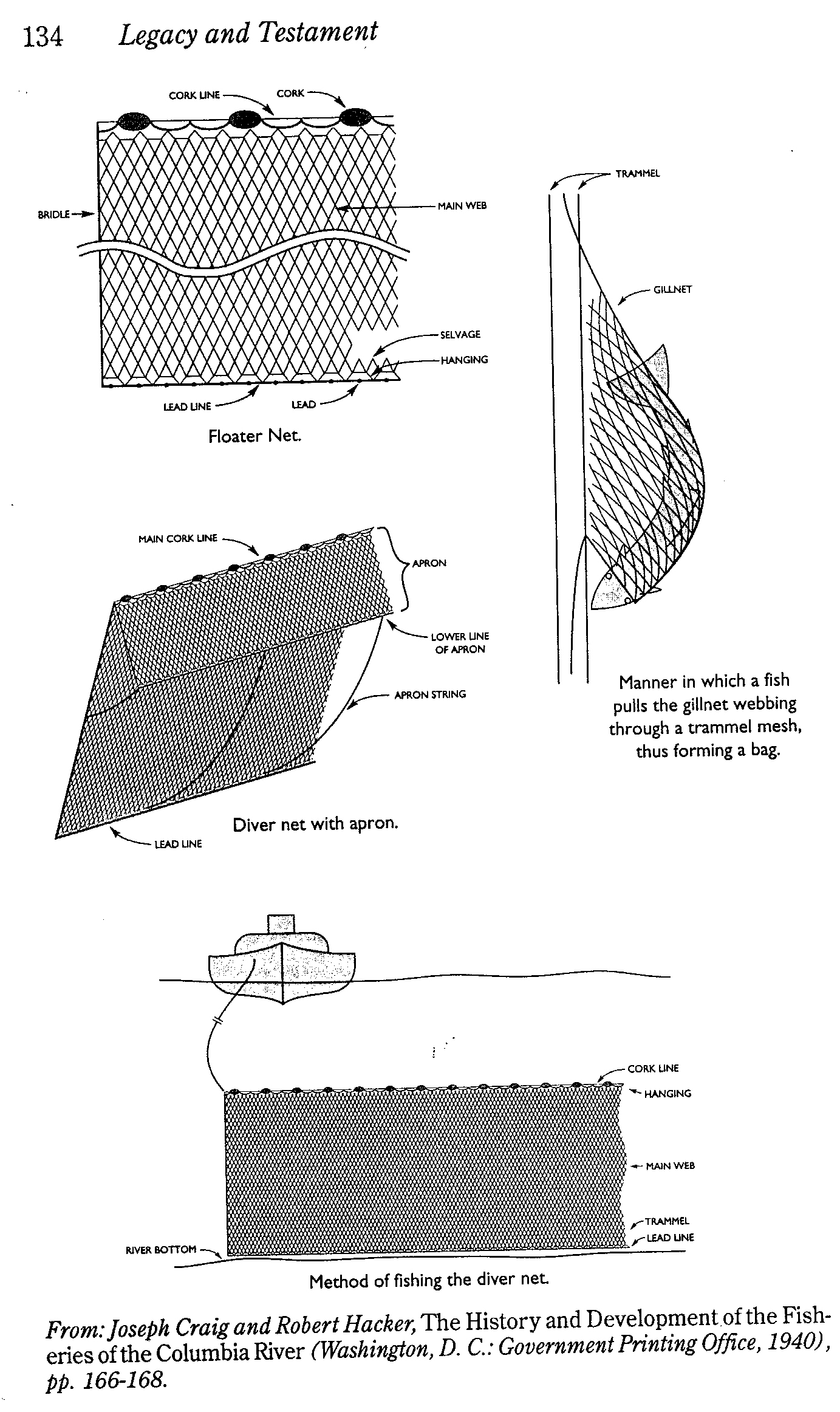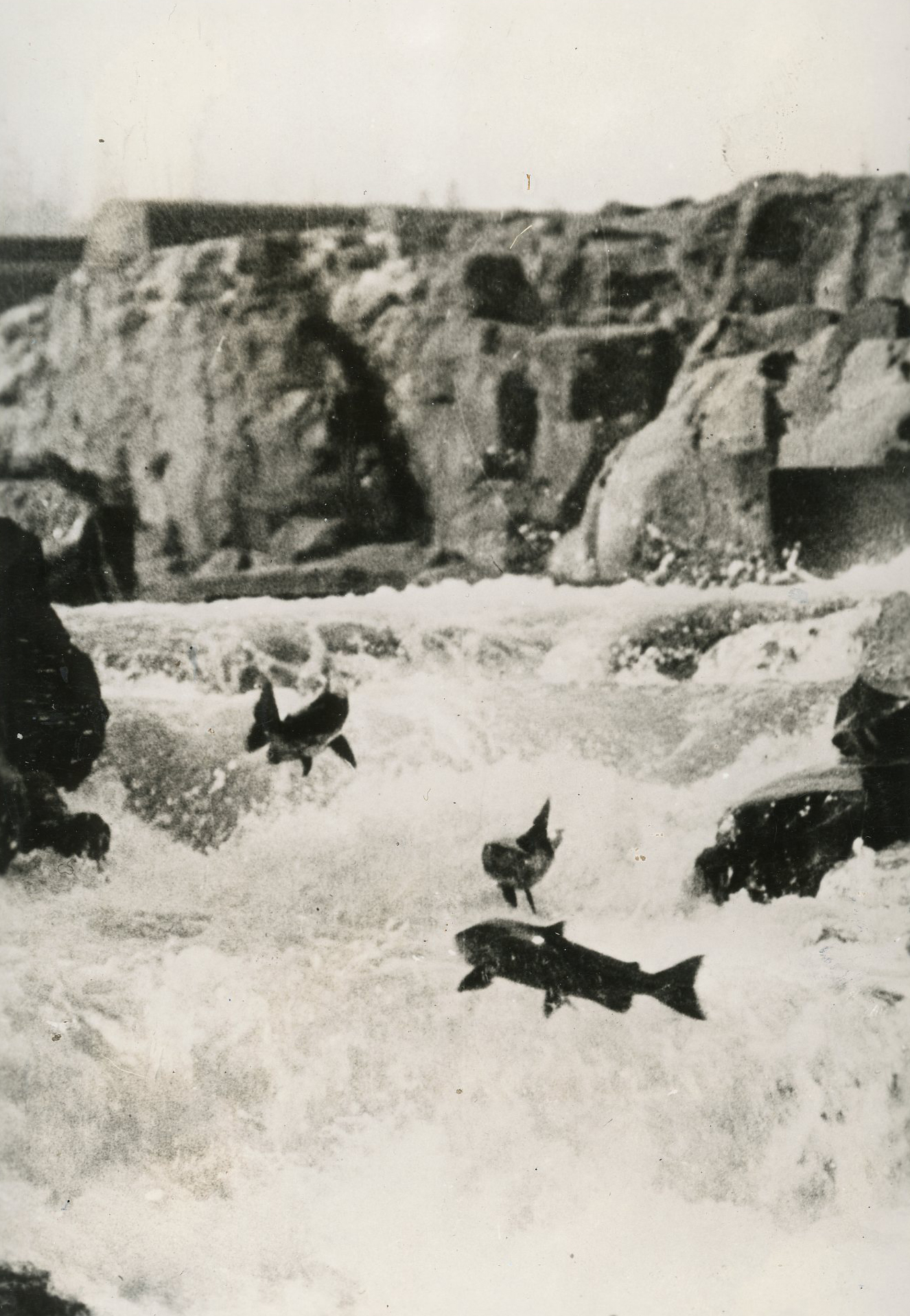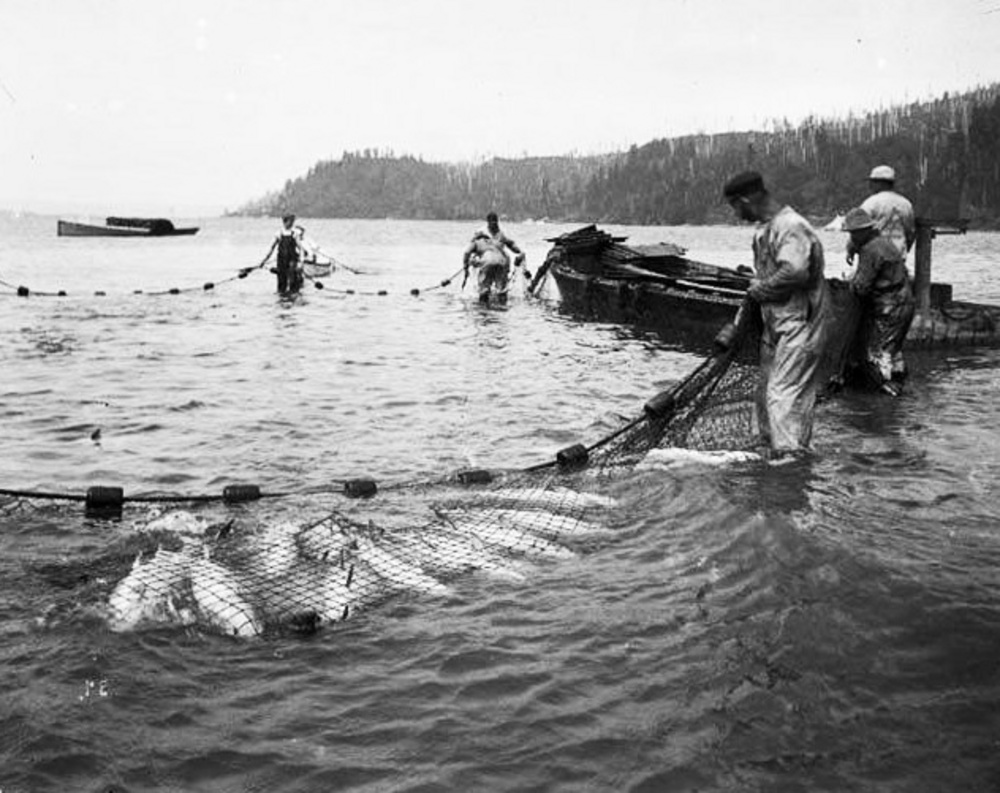Love him or hate him, Robert Deniston Hume, called R.D. for short, was a compelling figure in Oregon history. Born in 1845 into a family of poor Maine fishers, he watched several older siblings migrate to California in the early 1850s. By the time he followed in 1864, older brothers William and George had invented the new industry of canning salmon in tins. R.D. joined them and then, when Sacramento River runs collapsed, helped move the family business to the Columbia River in 1866.
The Humes not only operated the first salmon cannery on the river, but they were also key innovators, introducing new machinery, techniques, and marketing strategies to the industry. By the early 1870s, the family had succeeded beyond their wildest dreams, with each brother running his own venture and R.D. owning several canneries. Then, in the course of a few years, R.D.'s children and wife died. Broken-hearted, he sold his interests and fled to Wedderburn, Oregon, at the mouth of the Rogue River.
On the Rogue, Hume became a leader in salmon conservation. In 1877, he built the river's first cannery, and he reorganized the local fishery to prevent the recurrence of problems he had witnessed on the Sacramento and Columbia rivers. To ensure reproduction, he built private salmon hatcheries and funded state and federal operations farther upstream. He also tried to control harvests by restricting river access through riparian ownership; and he published a pamphlet, sent out with every case of his salmon, promoting his policies. Hume initially gained wide acclaim, but his idiosyncratic biological theories and sloppy hatchery practices led government officials to reject his ideas after 1900.
Late in life, the ambitious Hume mocked himself as a "pygmy monopolist" because his reach so often exceeded his means. He dominated southwestern Oregon economically and politically, with ventures extending from Alaska to San Francisco. Although he tried to break the Alaska Packers Association's lock on Alaska salmon, both on the water and by testifying before Congress, the APA eventually bought out his Karluk River operation in Alaska. He also tried to ram his way into a federally restricted tribal fishery on the Klamath River in southern Oregon, but his contrived claim was denied by the courts.
Hume's efforts to control the lower Rogue River fishery, which included having the Oregon legislature sanction his monopoly, were eventually nullified by state courts. Although largely forgotten, Hume's activities on the lower Rogue remain instructive of the economic and cultural challenges that still hound modern environmental conservation.
-
![]()
Robert D. Hume.
Oreg. Hist. Soc. Research Lib., bb003831
Related Entries
-
![Columbia River]()
Columbia River
The River For more than ten millennia, the Columbia River has been the…
-
![Gillnet fishing]()
Gillnet fishing
A gillnet is used by fishermen throughout the world to catch various sp…
-
![Salmon]()
Salmon
The word “salmon” originally referred to Atlantic salmon (Salmo salar),…
-
![Seine Fishing]()
Seine Fishing
For much of their fishing history in Oregon, Native Americans used hand…
-
![Seufert Brothers Cannery]()
Seufert Brothers Cannery
Seufert Brothers Company was the leading salmon packer on the Middle Co…
Related Historical Records
Map This on the Oregon History WayFinder
The Oregon History Wayfinder is an interactive map that identifies significant places, people, and events in Oregon history.
Further Reading
Dodds, Gordon B. "The Fight to Close the Rogue." Oregon Historical Quarterly 60 (December 1959): 461-74.
Dodds, Gordon B. The Salmon King of Oregon: R. D. Hume and the Pacific Fisheries. Chapel Hill: University of North Carolina Press, 1959.
Hume, Robert Deniston. A Pygmy Monopolist: The Life and Doings of R. D. Hume Written by Himself and Dedicated to His Neighbors. Gordon B. Dodds, Ed., Madison: University of Wisconsin Press, 1961.






